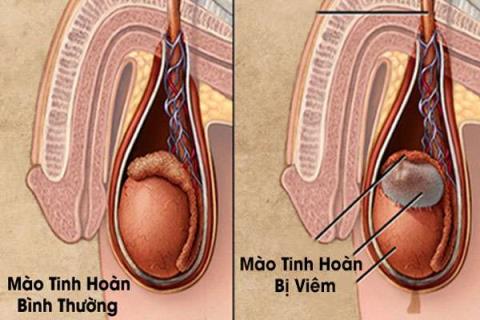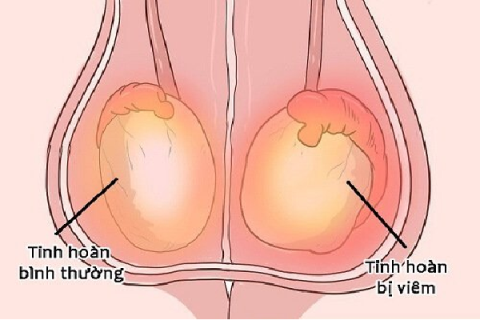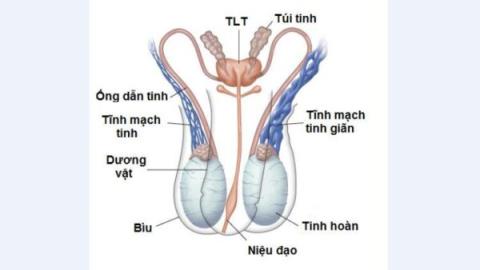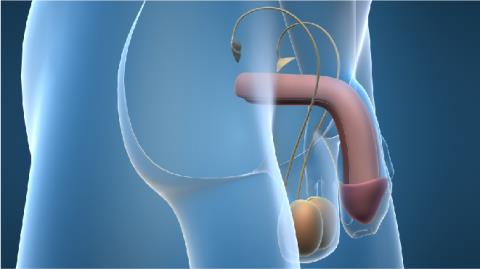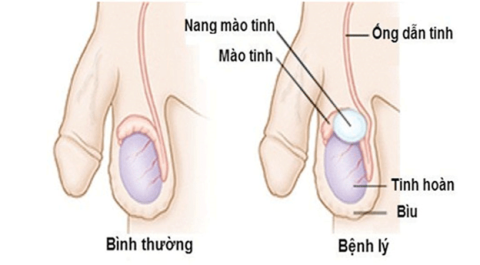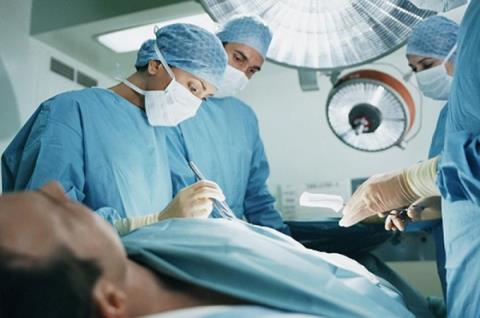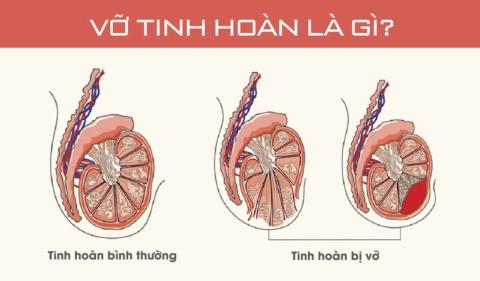Signs of testicular inflammation that you need to watch out for
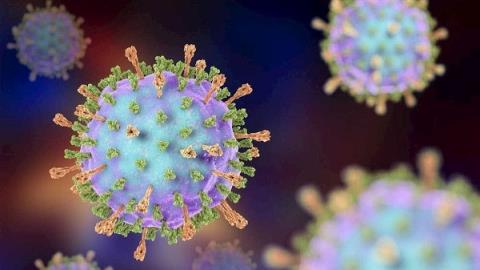
Signs of orchitis can appear in the testicles, urinary tract, and the whole body. Let's find out with SignsSymptomsList what those signs are!
Testicle pain, swelling, painful urination, pain, frequent urination are symptoms of orchitis that will bring a lot of discomfort and inconvenience to the patient. Moreover, there is concern about the effect on sperm production of the testicles, can inflammation of the testicle cause infertility? Let's learn about this disease that brings many fears and worries together.
content
1. Introduction
Orchitis alone is in fact an uncommon disease. This pathology is often progressed by epididymitis, when epididymitis gets worse, it will spread to the testicles causing orchitis.
In the case of simple orchitis, the cause is mainly viral, specifically the mumps virus. Because there are many cases where orchitis is a complication of epididymitis. Collectively called epididymitis - testicles, so the article will also briefly review epididymitis for readers to understand more about these two diseases.

2. Basic structure and function of testicles
Testicles have two types of structures: seminiferous tubules and interstitial cells. The seminiferous tubules produce sperm, and the interstitial cells secrete sex hormones. Sex hormones will help men with beards, muscles develop... show off the appearance of a man.
After the seminiferous tubules produce sperm, the sperm travels into the epididymis to reach the vas deferens. Based on the image above, it is clear that the epididymis is located posteriorly and superiorly to the testis, the epididymis is the most anterior structure if excluding the scrotal skin.
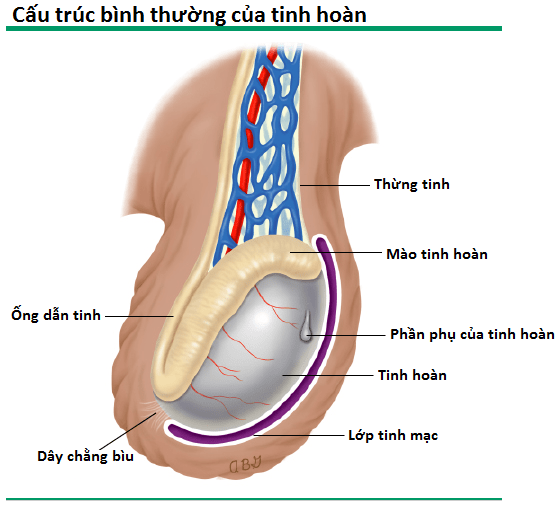
Structure of the testicles
3. Acute epididymitis
Along with testicular torsion, testicular appendage torsion, epididymitis is one of the common causes in patients with scrotal pain. Acute epididymitis can occur at any age. However, it is most often between the ages of 18 and 35, possibly because this is the age when male sexual activity is most active.
Reason:
Most cases of orchitis are caused by an infection. Germs travel upstream from the urethra, to the vas deferens and to the epididymis. To identify the causes of bacterial epididymitis, we classify as follows:
For the group of male patients who regularly have sex (age 18-35), especially the group who have sex without a condom, epididymitis easily occurs. The main bacteria causing epididymitis at this time are Chlamydia trachomatis and gonorrhea (Nesseria gonorrhoeae).
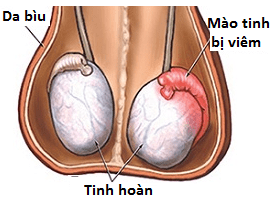
Epididymitis-testis: A late progression of epididymitis
In the group of patients over 35 years old with symptoms of dysuria, as well as in the group of gay men (anal intercourse), the main bacteria causing epididymitis is E.coli. Children <14 years old,="" can="" appear="" show="" inflammation="" crest="" sperm="" do="" inflammation="" pulse="" henoch="" scholein.="" here="" is="" a="" disease="" reason="" free="" translate="" at="" child="" em="" with ="" the="" expression="">
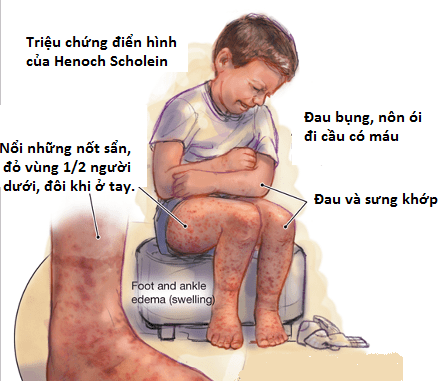
Scrotal pain due to aseptic epididymitis also belongs to the typical group of symptoms of Henoch Scholein
Medicines can also sometimes cause epididymitis. Amiodarone (an antiarrhythmic drug) has caused epididymitis in a few cases. In addition, in our country's environmental conditions, epididymitis may appear (tuberculosis epididymitis).
Risk factor:
Symptom:
On examination, the patient's testicles are swollen, tender, often red, and in most cases only on one side. In the early stages, inflammation is mainly in the epididymis, that is, the posterior part, above the testicle.
When the patient arrives later, the inflammation will spread to the entire testicle on the same side, causing epididymitis - orchitis. At this point, it is difficult to distinguish between patients with epididymitis leading to orchitis or orchitis at baseline.
Your doctor will be concerned about a number of things:
All of these questions serve several purposes:
Test:
The medical staff will numb, reduce sensation in the penis area, then take a stick to collect pus in the urethra to find the culprit. In about two-thirds of cases it will be intestinal bacteria if the patient is not at risk of having sex without a condom.
If there is no pus in your urinary tract, your healthcare provider will use your urine to look for bacteria that cause illness.
Usually not necessary, but plays a role in diagnosing complications or ruling out testicular torsion.
Symptoms:
Treatment:
Most acute epididymitis is caused by bacteria, so depending on the cause, your doctor will have your own treatment options.
Specific treatment: Antibiotics: Help kill bacteria that cause epididymitis.
Supportive treatment:
Chill out, use pain relievers, wear underwear that hugs the scrotum, and rest in bed. The goal of these treatments is to relieve pain and reduce swelling of the epididymis.
4. Acute Orchitis
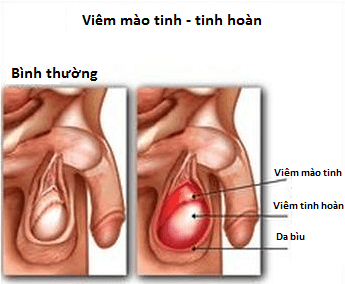
Inflammation of the epididymis and testicles
As mentioned, isolated acute orchitis is uncommon. Acute orchitis differs from acute epididymitis in 2 points:
Symptom:
Swollen testicles usually appear 4-6 days after parotid gland swelling. However, orchitis may present without prior parotid gland inflammation. When orchitis is caused by mumps alone, 70% of cases are unilateral. Rectal orchitis occurs 1 to 9 days later in 30% of cases.
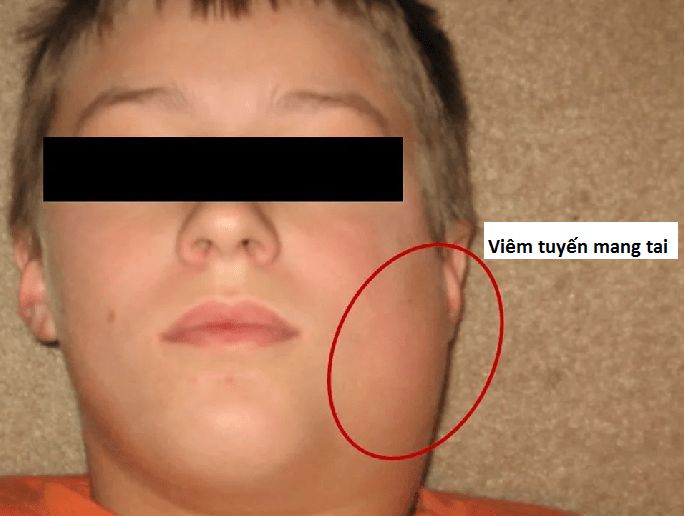
Inflammation of the parotid gland
The degree of swelling and pain in the scrotum is very variable, there may be only mild discomfort, little swelling, but also a lot of pain, swelling, accompanied by nausea and vomiting, high fever. On physical examination, the testicles are swollen, hot and red, and the epididymis and vas deferens can also be palpated. Symptoms will subside in 4-5 days if mild. Up to 3-4 weeks in severe cases.
In older studies, 25% of bilateral mumps orchitis cases resulted in infertility. However, recent studies refute that. In very few cases, mumps orchitis causes infertility. In addition to Mumps, infection with the Coxsackie B virus can also cause orchitis.
In case of bacterial orchitis:
Also known as pyelonephritis. Most are associated with epididymitis, and intestinal bacteria are the predominant cause. Patients often present with very severe disease:
Pain may radiate to the groin area. At this time, the patient is in a lot of pain, possibly accompanied by nausea and vomiting. On examination, the scrotum is swollen, a lot of fluid is secreted by inflammatory fluid from the testicle. This fluid is located under the skin of the scrotum and the seminal vesicles. It is difficult to palpate the testicle, and it is a bit painful to press (because there is a lot of fluid, so it is difficult to palpate).
Symptoms:
5. Some knowledge about mumps virus
Mumps is a virus that is spread through the respiratory tract when an infected person coughs or sneezes. Or spread through shared utensils without washing hands with soap. Treatment of mumps is mainly to relieve symptoms for the patient.
The vaccine against mumps is integrated into the MMR (measles-mumps-rubella) vaccine. Vaccination is required twice in life, at 12-15 months of age and 4-6 years of age. If you haven't had enough or don't remember if you've had enough, you should get a booster shot.
Who should not get the mumps vaccine:
Epididymitis, epididymitis - orchitis, or orchitis are all conditions that cause a lot of discomfort to patients. Understanding more about these diseases helps us to draw some of the following knowledge to prevent and recognize epididymitis and testicular inflammation:
Doctor Nguyen Doan Trong Nhan
Signs of orchitis can appear in the testicles, urinary tract, and the whole body. Let's find out with SignsSymptomsList what those signs are!
Doctor Nguyen Doan Trong Nhan's article about orchitis, epididymitis are diseases that cause a lot of anxiety for male patients.
What are the effective treatments for testicular pain? Let's learn about this issue with Ths.Bs Tran Quoc Phong through the following article
Relatable orchitis is a question many men ask their doctor. To learn this question, follow the article.
What is the normal testicle size? Learn about this issue with MSc.BS Tran Quoc Phong through the following article
The article is the doctor's answer to the question Can testicular atrophy be cured? At the same time, the article offers treatment methods.
Article by Doctor Nguyen Lam Giang about acne on the testicles. Although it is not life-threatening, men should not be subjective.
Epididymal cysts usually do not impair fertility and do not require treatment. The following article will give you more information about the disease.
What are the treatments for saggy testicles? Learn about ways to cure saggy testicles with MSc Tran Quoc Phong through the following article
How should testicle rupture be treated? Learn about this situation with MSc Tran Quoc Phong through the following article

